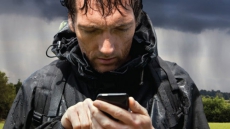A new study by psychology researchers from Concordia University and the University of British Columbia shows that by the age of five, children become wary of information provided by people who make overly confident claims.
"Our study gives us a window into children's developing social cognition, skepticism and critical thinking. It shows us that, even though kindergarteners have a reputation for being gullible, they are actually pretty good at evaluating sources of information. Parents can use this ability to help guide them in their learning," said Patricia Brosseau-Liard from the department of psychology in the University of British Columbia, Canada.
For the study, Brosseau-Liard recruited 96 four- and five-year-olds and had the youngsters weigh two important cues to a person's credibility - prior accuracy and confidence - when deciding what to believe.
They showed the children short videos of two adults talking about familiar animals. The speakers would either make true statements in a hesitant voice and false statements in a confident voice.
The kids were then shown videos of the same two adults speaking about strange animals.
The previously confident speaker would state facts with confidence, and the previously hesitant speaker remained hesitant while stating different facts.
The participants were then asked whom they believed.
Children around four were as likely to believe the confident liar as the hesitant truth-teller.
But as they turned five, the children were more likely to believe the previously accurate but hesitant individual.
A year can make a big difference in terms of a child's evolution in the critical consumption of information, suggested the researchers.
These findings are important for teachers and care-givers, concluded Brosseau-Liard.
The study appeared in the journal PLOS One.





